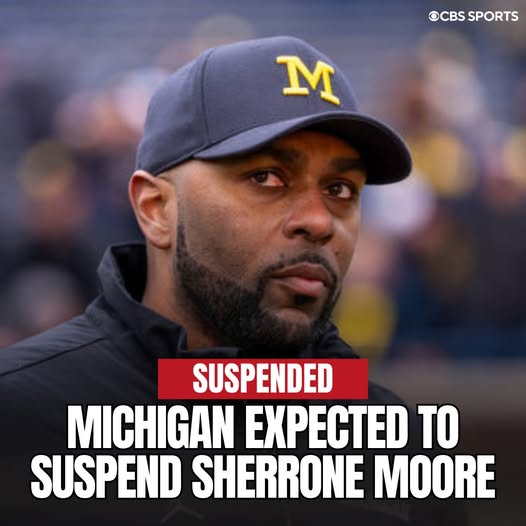The University of Michigan is no stranger to the bright lights of college athletics, particularly in football, where the Wolverines have long stood as a powerhouse in the sport. However, recent actions off the field have put the school under intense scrutiny, leading to a self-imposed punishment in an attempt to quell the growing concerns from both the NCAA and its own fanbase. This move represents the latest chapter in the ongoing saga of NCAA investigations into program violations, and it raises several important questions about the nature of self-regulation and the consequences of institutional errors.
The self-imposed penalties from Michigan, while significant, have drawn mixed reactions across the college football landscape. Some see it as a genuine attempt at accountability, while others view it as a strategic maneuver to avoid harsher penalties from the NCAA. Regardless of perspective, this step is indicative of an increasing trend among high-profile programs to take preemptive action in response to potential violations.
To understand the reasoning behind Michigan’s decision, it’s necessary to first examine the context of the NCAA’s involvement with the program. The NCAA has been investigating a range of issues within Michigan’s football program, some of which have been simmering for months. Among the most prominent are questions about recruiting violations, impermissible benefits for athletes, and a potential breach of NCAA rules regarding compliance. These issues have been clouding the Wolverines’ otherwise stellar on-field performance, with the team consistently competing at a high level in recent years under the leadership of head coach Jim Harbaugh.
At the heart of the issue lies a pattern of behavior that the NCAA finds concerning, involving practices that could undermine the integrity of college sports. While these violations are not uncommon in the highly competitive environment of major college athletics, the attention they have garnered in Michigan’s case is due to the program’s stature and the national implications they may have on the broader college football landscape. When major programs like Michigan are under investigation, the potential for significant penalties becomes a matter of great concern, both for the university and the NCAA itself.
In response to the investigation, Michigan made the decision to impose a series of self-inflicted punishments in an effort to demonstrate their commitment to compliance and address any wrongdoing before the NCAA had an opportunity to issue its verdict. Among the key elements of this self-imposed punishment were a reduction in scholarships for the football team, a temporary reduction in the number of official visits to recruits, and the suspension of several key staff members, including some high-ranking assistants. The university’s willingness to take such actions was seen as an attempt to avoid more severe penalties from the NCAA, which has the power to impose fines, postseason bans, and even more extensive scholarship reductions.
The question, however, remains: Why would Michigan choose to take such drastic measures on its own, especially when the NCAA is still in the process of reviewing the case? One of the key factors is the growing realization that self-imposed penalties can sometimes be seen as a mitigating factor when the NCAA hands down its ruling. By taking proactive steps to address the issues before the governing body does, Michigan is essentially making a statement about its commitment to compliance and its willingness to hold itself accountable. In the past, similar actions by other schools have led to more lenient outcomes when the NCAA ultimately delivered its sanctions.
However, there is a deeper layer to this decision that goes beyond the immediate legal or compliance concerns. Michigan’s football program is at a pivotal moment in its history, with the team reaching new heights under Harbaugh’s leadership. The Wolverines are consistently competing for Big Ten titles and college football playoff berths, and their success on the field is matched only by the increasing expectations off the field. The program’s reputation, which is carefully cultivated through years of success, branding, and tradition, is now at risk due to the allegations surrounding its recruitment and other off-field activities.
By self-imposing penalties, Michigan is also sending a message to its fanbase, recruits, and players that it is serious about maintaining the integrity of its program. The public relations aspect of this decision cannot be understated. In a world where perception is often just as important as reality, Michigan is working to control the narrative surrounding the controversy. Rather than waiting for the NCAA to come down with penalties that could potentially tarnish the program’s reputation, Michigan has taken control of the situation, demonstrating a level of transparency and accountability that could pay off in the long run.
This decision has also sparked a broader conversation about the NCAA’s power and its ability to enforce rules across the landscape of college sports. In an era where schools are generating more revenue than ever before, particularly through lucrative media rights deals, sponsorships, and NIL (Name, Image, Likeness) deals, the NCAA’s role as the ultimate arbiter of college athletics has come under increasing scrutiny. Many have questioned whether the governing body is equipped to handle the modern complexities of college sports, particularly when it comes to enforcing rules that seem increasingly outdated in the face of the commercialization of college athletics.
Some critics argue that the NCAA’s heavy-handed approach to enforcing compliance has led to a culture of fear and avoidance among institutions. Schools like Michigan, which are already on the radar of NCAA investigators, may feel pressure to take matters into their own hands before the governing body has a chance to act. This, they argue, is not only an attempt to avoid harsher penalties but also a reflection of the broader power imbalance between major programs and the NCAA. In this view, self-imposed punishments like those Michigan has announced could become more common as schools seek to protect their own interests in an increasingly complicated and competitive environment.
In contrast, others see Michigan’s actions as a necessary step in a larger process of reform within college athletics. The program’s decision to self-impose penalties is being viewed by some as a sign of progress and a shift towards greater self-regulation within the collegiate sports ecosystem. In this view, Michigan is setting an example for other programs to follow, demonstrating that accountability does not have to come at the hands of an external organization like the NCAA. Instead, schools can take responsibility for their actions and work to restore trust with their communities, athletes, and fans.
As for the NCAA, it is yet to be seen how the organization will respond to Michigan’s self-imposed sanctions. While the governing body has typically reserved the right to impose additional penalties beyond those that schools impose on themselves, there is always the possibility that Michigan’s actions will be taken into account when the final verdict is handed down. If the NCAA feels that Michigan’s self-regulation is sufficient, the program could avoid a lengthy investigation and potential sanctions, allowing it to continue its upward trajectory on the field without further distraction.
The implications of Michigan’s decision will likely have ripple effects across college athletics. As programs are increasingly held accountable for their actions off the field, self-imposed penalties could become a regular part of the landscape in college sports. This could signal a shift toward greater self-regulation within the industry, with schools taking proactive steps to ensure they remain in compliance with NCAA rules and avoid the potentially damaging effects of external investigations.
For now, Michigan’s football program will continue to focus on the task at hand: competing at the highest level and maintaining its status as one of the premier programs in the country. The road ahead, however, will likely be shaped by the fallout from this self-imposed punishment and its aftermath. While the program has made an effort to address the concerns raised by the NCAA and its critics, only time will tell if these actions will be enough to restore confidence in the Wolverine football program and ensure its continued success on and off the field.



